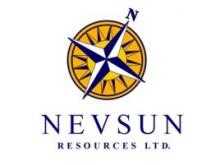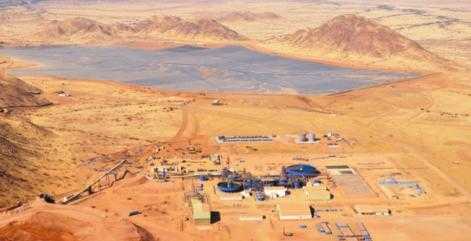War profiteer of the month: Nevsun Resources
The United Nations has released a damning report into the operations of Canadian mining company Nevsun Resources in Eritrea, which accuses the company of using conscripted labour at it's Bisha Mine in the country. Nevsun estimated that the mine held over a billion pounds of copper and 2.7 billion pounds of zinc.
The report accuses Nevsun Rescources, via it's subsidiary the 'Bisha Mining Shareholders Corporation' (BMSC), of using forced labour sourced from conscripted members of the Eritrean military, using testimony collected from Eritrean refugees who were conscripted into the states 'national service' programme. The report details the story of an Eritrean conscript, who was sent to the Bisha mine with his military unit. The former conscript said, “In February 2010, we all had to go to Bisha. We did not get any details, we were only told to go to Bisha. I don’t know how many we were, but it was the whole military division. I was part of a team to do construction, we were building houses... They would not tell us what we were doing, but sometimes we heard we were building the offices or living or changing quarters. We just guessed what it was for. ”
The Bisha Mine is the only functioning mine in Eritrea, and BMSC is owned 60:40 by Nevsun and the Eritrean government respectively. Eritrea is rich in untapped mineral resources, including gold, copper, potash, zinc, oil, natural gas, cement, gypsum, granite, marble, ceramics, limestone and iron ore. In their 2013 'Hear No Evil' report, Human Rights Watch said that companies racing to take advantage of the mineral resources in Eritrea risked walking into “a potential minefield of human rights problems. Most notably they risk getting entangled in the Eritrean government’s uniquely abusive program of indefinite forced labour.”
Conscription in Eritrea
Eritrea is a highly oppressive and militarised country, where everyone is conscripted into the 'national service' program at the age of 18, often indefinitely – the country has been described as 'the North Korea of Africa', and Human Rights Watch have said that “many Eritreans have been forced to work as conscript laborers for over a decade”. In normal circumstances, national service is supposed to last 18 months. This consists of six months military training and 12 months deployment either on military duties or some other national development project. However, the conscription law in Eritrea allows for national service to be extended until 50 years of age 'under mobilization or emergency situation directives given by the government'.
The UN's special rapporteur on human rights in Eritrea said that “forced labour was used, especially in the construction phase [of the Bisha mine], for the simple reason that all construction [operations] are done under the government.” In 2006, the Eritrean government enforced a state monopoly over the construction industry by ordering all private companies and contractors in the construction industry to close. Only those owned by the government, like Segen Construction, are allowed to accept contracts. The UN report said, “Even though Segen tried to conceal their status, the majority of Segen’s “workers” were in fact conscripts performing their national service. Engineers and other skilled staff worked directly for Segen under the civil national service scheme, while the majority of labourers were conscripts whose military units were put at the disposal of Segen by the army.”
In 2014, three Eritrean refugees took Nevsun Resources to court, claiming that the company “conspired with the Eritrean government to force them and other conscripted workers to work at a copper mine for long hours while receiving little pay and living in squalid conditions.” Gize Yebeyo Araya , one of the refugees suing the company said he was paid less than 500 nafka (£20) a month to dispose of dangerous chemicals, and that the workers were “constantly being watched by security personnel and were strictly ordered by our commanders not to tell anyone that we were conscripts.”
The company has released independent human rights reports, which found no evidence of forced labour or human rights violations at the mine.


Add new comment